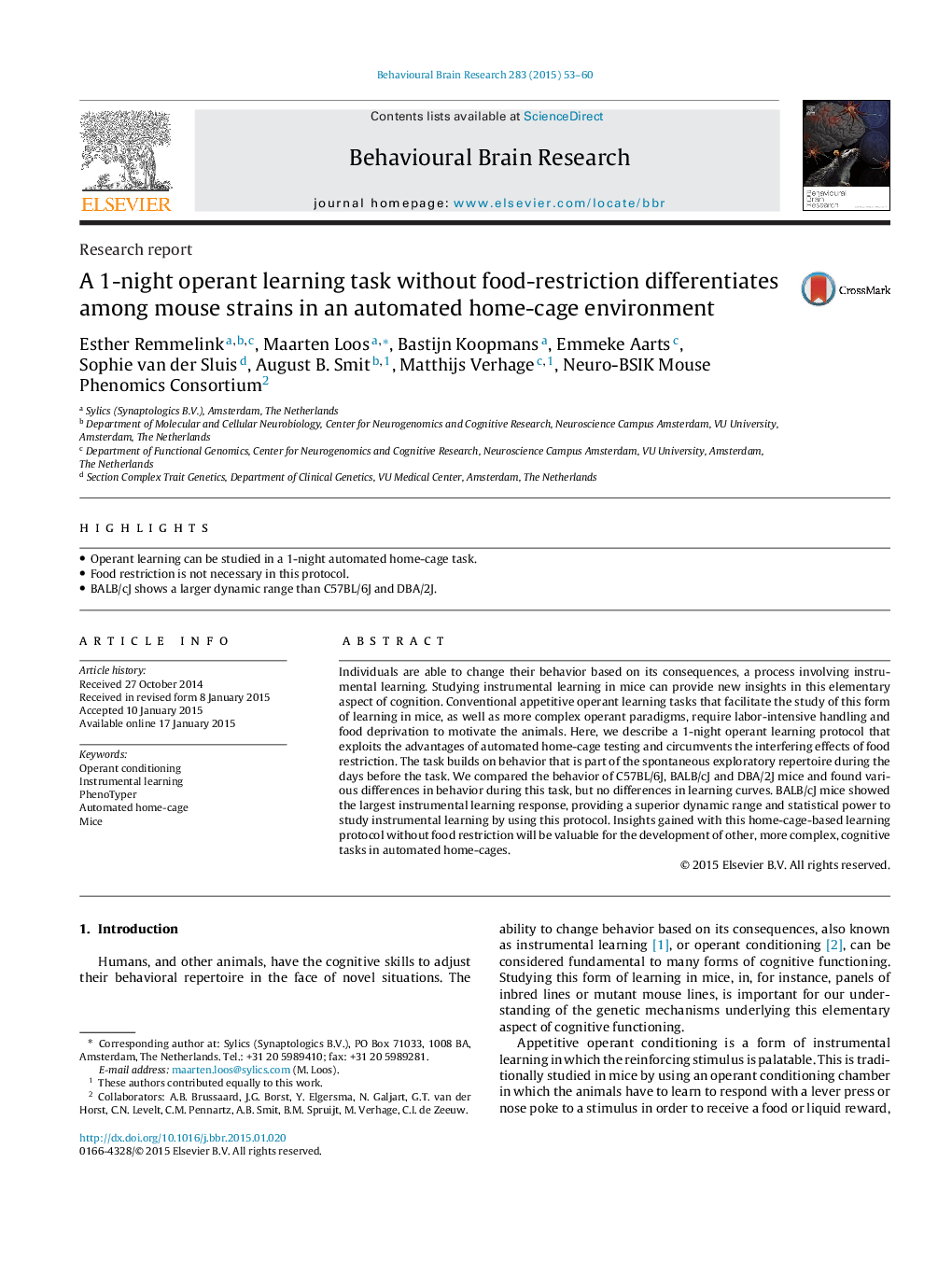| کد مقاله | کد نشریه | سال انتشار | مقاله انگلیسی | نسخه تمام متن |
|---|---|---|---|---|
| 4312472 | 1612949 | 2015 | 8 صفحه PDF | دانلود رایگان |
• Operant learning can be studied in a 1-night automated home-cage task.
• Food restriction is not necessary in this protocol.
• BALB/cJ shows a larger dynamic range than C57BL/6J and DBA/2J.
Individuals are able to change their behavior based on its consequences, a process involving instrumental learning. Studying instrumental learning in mice can provide new insights in this elementary aspect of cognition. Conventional appetitive operant learning tasks that facilitate the study of this form of learning in mice, as well as more complex operant paradigms, require labor-intensive handling and food deprivation to motivate the animals. Here, we describe a 1-night operant learning protocol that exploits the advantages of automated home-cage testing and circumvents the interfering effects of food restriction. The task builds on behavior that is part of the spontaneous exploratory repertoire during the days before the task. We compared the behavior of C57BL/6J, BALB/cJ and DBA/2J mice and found various differences in behavior during this task, but no differences in learning curves. BALB/cJ mice showed the largest instrumental learning response, providing a superior dynamic range and statistical power to study instrumental learning by using this protocol. Insights gained with this home-cage-based learning protocol without food restriction will be valuable for the development of other, more complex, cognitive tasks in automated home-cages.
Journal: Behavioural Brain Research - Volume 283, 15 April 2015, Pages 53–60
